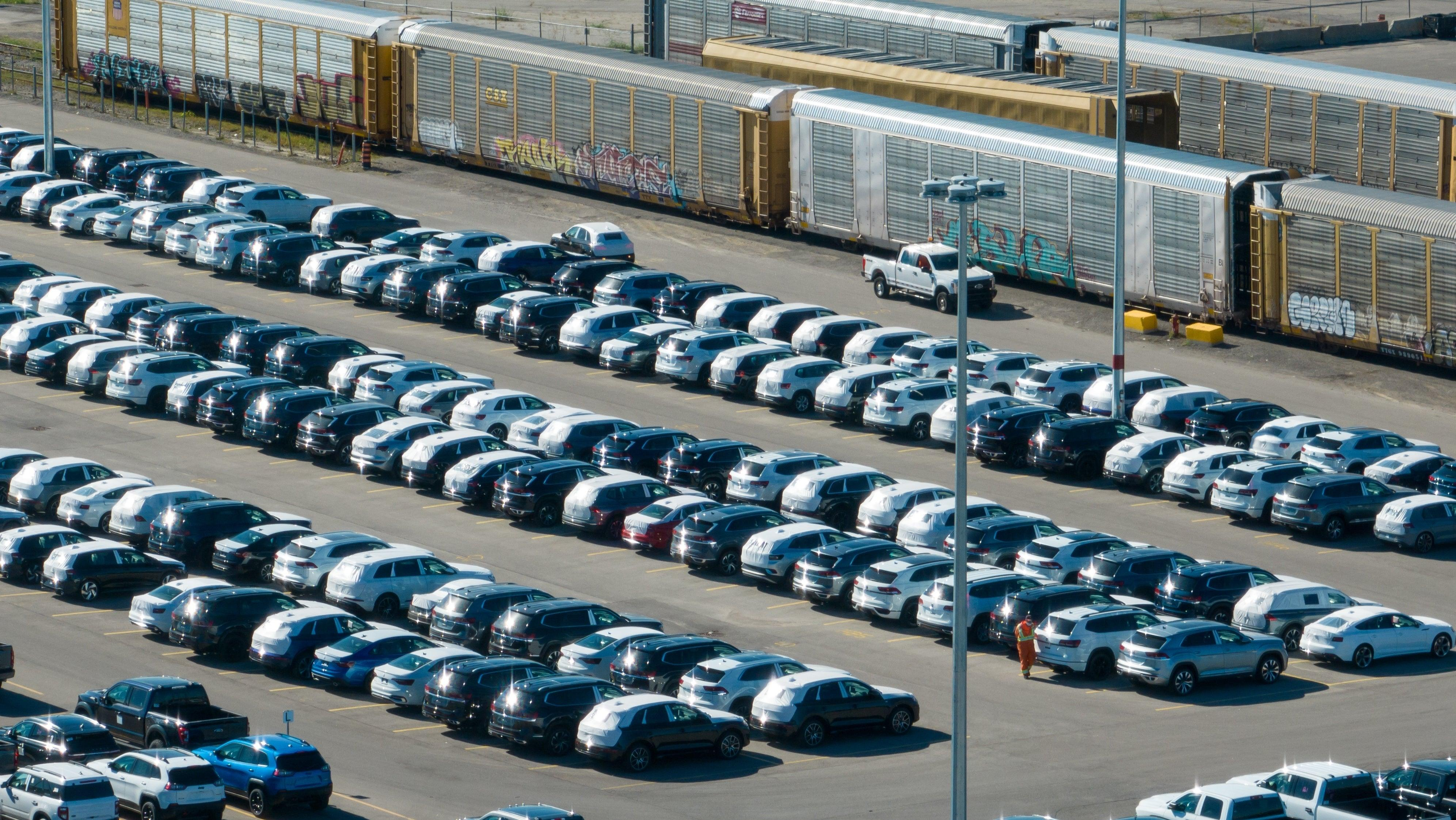Rail Car Shortage Keeping 70,000 New Cars Off Dealer Lots As Supply Chain Issues Continue
The new car shortage is not nearly as bad as it was just a couple years ago, but there's no way to get them in dealers' hands.
Since the start of the COVID-19 pandemic, the auto industry has dealt with shutdowns, chip shortages, supplier and material shortages — all while trying to quickly pivot to electrifying new car offerings. While we haven't gotten around to eliminating all of those issues quite yet, cars are back in production and we're seeing more and more new product hitting lots. But, there could be more. Now it appears a rail car shortage is keeping cars from dealer lots and consumer garages.
Industry regulators estimate over 70,000 brand new cars are unable to be delivered to dealers because there aren't enough railcars, as reported by the Detroit Free Press. Rail cars are essential to the auto industry and getting cars from the factory to dealer lots. According to John Bozzella, CEO of Alliance for Automotive Innovation, every year over 75 percent of all new vehicles in the U.S. are moved by railcar. With that many vehicles moving annually, if there's a shortage of rail cars, you can see how this situation would reach a critical point.
A person familiar with General Motors' Fort Wayne Assembly in Indiana, for example, told the Detroit Free Press there are thousands of finished Chevrolet Silverado and GMC Sierra pickups parked in the Fort Wayne area and no rail cars available to ship them to market. The person asked to not be identified because they are not authorized to share that information publicly.
These specific railcars are all part of a large sharing pool used by multiple rail companies. Known as "railracks," these specific rail cars make up just 20 percent of the 1.6 million freight cars currently available. And it's not like you can just make more to fix the problem. These railracks take two or three years to produce.
The shortage has gotten so bad that automakers have reduced production output so as not leave more finished cars sitting around the plants. Federal agencies told Freep they're aware of the situation, but didn't say much about how they're going to fix it. However, major railroad companies like CSX and Norfolk Southern say they're working on a fix. Solutions can't come soon enough, as if the cars can't leave the plants, why make more?
